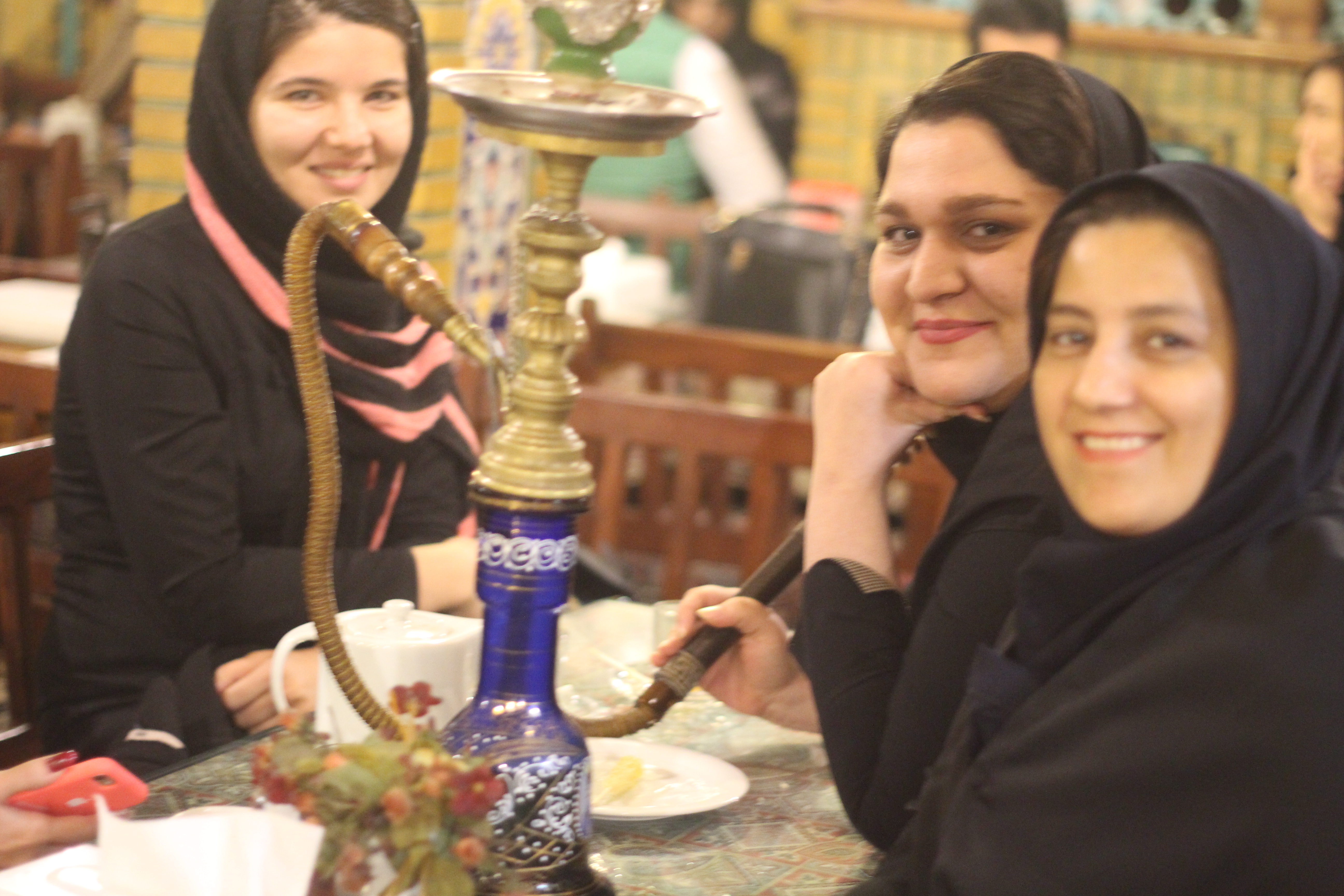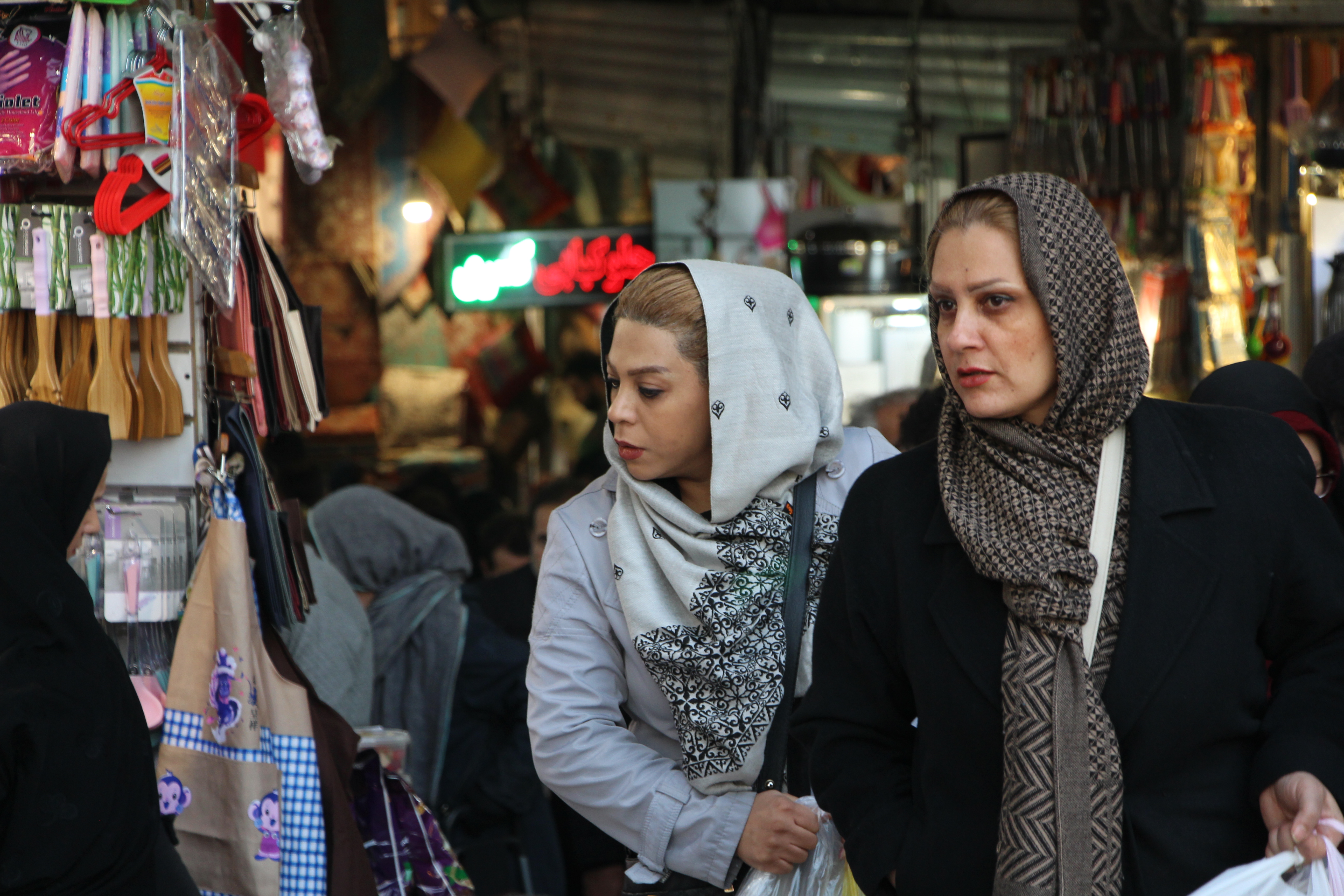
TEHRAN—Ayatollah Sayed Hassan Moin Shirazi entered the room wearing a clerical brown robe and a black turban, indicating he is a descendent of the Prophet Mohammed. With his long gray beard, he could be mistaken for the stereotypical mullah of American action movies.
In fact, he is one of the leading anti-smoking clerics in Iran. Since the mid-1980s, he has been arguing and cajoling Iranians to kick their nicotine habit. To illustrate his passion for the issue, he told a story of being stuck in one of Tehran’s notorious traffic jams as a man in the car next to him sucked on a cigarette, blowing smoke out the window to avoid smelling up his car. The ayatollah said he leaned out his window and told the miscreant: “I wish you would care as much about smoke going into your lungs as about it going into your car.”
The man immediately put out the cigarette, Moin Shirazi said, and promised to stop smoking. Nothing like an upbraiding from an ayatollah to make an Iranian reconsider his life choices.
More than a decade ago, Iran passed one of the world’s most comprehensive anti-smoking laws. The 2007 law bans smoking in closed places such as buildings, hotels, restaurants, and cars. Iran scored nine out of 10 in the World Health Organization’s latest tobacco report, which evaluates a country’s laws, cessation efforts, and other anti-tobacco measures.
“We’ve seen a drastic change,” pulmonologist Mohammad Reza Masjedi, the head of the Iranian Anti-Tobacco Association, told Foreign Policy. “Due to education campaigns and media coverage, those buildings are smoke-free.”
Yet after 11 years, tobacco use in Iran remains almost the same as when the law first passed.
"Yet after 11 years, tobacco use in Iran remains almost the same as when the law first passed."
Iran’s anti-smoking efforts reflect the wider difficulties faced by the government: Tobacco use is a deeply ingrained habit, and appeals to Islamic values, which had an impact on other social issues years ago, have failed to win over the population. Whether it is smokers or protesting workers, the government now has a harder time exercising control.
Before the law change, in 2005, just over 15 percent of Iranians smoked, according to health surveys. By 2007, smoking had decreased to 11 percent, according to some studies. However, the overall rate shot up again. Today, it stands at 14 percent, according to the latest Ministry of Health statistics.
The law hasn’t accomplished everything its advocates hoped it would. Many restaurant owners ignore the ban, Masjedi said, and he blames an increase in the use of water pipes for offsetting a drop in cigarette smoking. Water pipes can cause the same negative health effects as cigarettes, but that’s not how many young Iranians see it.
“We don’t smoke,” said one young woman at a restaurant serving traditional food, who was sharing a water pipe with friends. She declined to give her name. “We never use cigarettes. The water pipe? That’s just for fun.”
Iran has a long history of opposition to tobacco. In 1890, a British tobacco company struck a deal with the corrupt Persian shah to gain a monopoly over tobacco cultivation and sales.
“It endangered the sovereignty of our country,” explained Ayatollah Moin Shirazi.
In 1891, a leading ayatollah issued a fatwa, or religious decree, banning smoking throughout Persia. The tobacco boycott, combined with mass demonstrations, scuttled the British deal. The battle is still recognized as a major anti-imperialist event in Iran’s history — but it didn’t make Iranians kick their nicotine habit.
“Unfortunately, after the revolt,” Moin Shirazi said, “people went back to smoking.”
The ayatollah has studied the religious implications of tobacco use. He conceded that the Quran doesn’t specifically prohibit smoking. But Islam teaches “not to harm yourself or others,” he pointed out. “When I meet with people, I explain how smoking harms them and their children.”
He issued a fatwa against tobacco use. “Smoking violates Islamic principles,” he said.
“Smoking violates Islamic principles,” he said.
Masjedi said, however, that religious arguments against smoking don’t win over many people. Educators are far more successful when they explain the health risks of smoking and secondhand smoke and emphasize the high cost of tobacco use, especially for poor families.
Anti-smoking campaigners say Iran’s state-owned tobacco industry is partially to blame. The Ministry of Industry, which controls the tobacco factories, has a vested interest in selling cigarettes, and opposes raising cigarette taxes, arguing that will just increase smuggling.
International tobacco giants also contribute to the problem. Corporations sell licenses to Iran’s state tobacco company for such famous names as Winston, Kent, and Pall Mall. Corporations export American tobacco, which is then rolled into cigarettes in Iranian factories and sold under brand names. Those cigarettes are not subject to sanctions under an exemption for sale of agricultural products. The sanctions rules also allow for medical exemptions, although Iran had trouble importing medical supplies and pharmaceutical drugs.
Dr. Masjedi noted that his hospital couldn’t import specialized masks for its tuberculosis laboratory because the United States claimed they could also be used for military purposes. “But US brand cigarettes were always available.”
The anti-tobacco association focuses efforts these days on education campaigns. It has a pilot project in a city near Tehran, talking with children as young as six.
Ayatollah Moin Shirazi continues both his public advocacy and working with individuals to stop all kinds of smoking. He speaks proudly of his collection of old cigarette packs. When people stop smoking, they mail him the packs with their phone numbers written inside.
“I call them months later to see if they have still stopped smoking,” he said with a smile. “Most have.”
Reese Erlich’s latest book is "Inside Syria: The Backstory of Their Civil War and What the World Can Expect."







